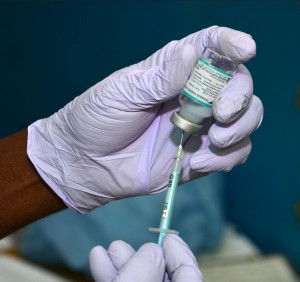
In a statement to the Social Forum of the UN Human Rights Council in Geneva, the Permanent Observer of the Holy See to the United Nations, Archbishop Tomasi urged a ‘creative and innovative approach’ to intellectual property rights so that ‘the right to health for all people without any form of discrimination can be fully guaranteed and implemented’.
Drawing on the experience of the Catholic Church in caring for the sick in more than 5,000 hospitals and 18,000 dispensaries in every region of the world, the statement noted that States have not fulfilled their responsibility to make medicines and diagnostic tools affordable and accessible, especially to the poorest and most marginalised populations in low-income countries. A major stumbling block in providing such access is found in restrictive applications and interpretations of intellectual property rights by many in the pharmaceutical industry.
This is due firstly to some pharmaceutical companies asserting a claim to unrealistic profit and cost recovery margins even though most governments and individual buyers from developing countries do not have the financial capacity to purchase these products at such high cost, and secondly, to the lack of incentive to conduct research on “low return on investment” treatments. This excessive focus on profit, leads much of the pharmaceutical industry to orient research toward health issues that have greater market potential in wealthier industrialised countries.
The statement highlighted the particular problem resulting from the failure to develop many essential medicines in appropriate formulations or dosages specific for children, resulting in the tragic loss of life or continued chronic illness among needy children.
For a number of years ERI has supported the Caritas International campaign in relation to children living with HIV, which has resulted in some progress on this issue. However more challenges remain to be addressed in order to ensure access to medicines that are prepared in “child sized”, fixed dose combinations, of acceptable taste and form, and easy to administer to infants and very young children.